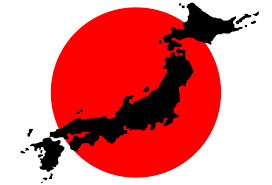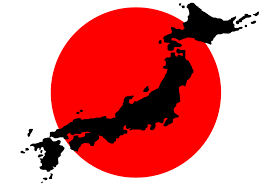
The pain caused by a rising yen was reflected and the huge task facing policymakers to generate growth is highlighted in the results of a poll done by Reuters showcasing the mood of the manufacturers. The poll showed that the mood of the Japanese manufacturers has soured in August to its lowest since 2013 at a time when the central bank embarked on aggressive monetary easing.
In a sign of fragility rather than strength in private consumption that constitutes about 60 percent of the economy, the Reuters Tankan survey found that the service sector's mood rose for the first time in five months. The Reuters Tankan tracks the Bank of Japan’s quarterly tankan survey.
The survey was conducted just as Prime Minister Shinzo Abe unveiled his new economic stimulus early this month. 275 of the 533 big and mid-sized firms who were approached for the survey on August 1-16 responded to the monthly poll. He poll showed that the Shinzo Abe’s economic stimulus seemed to have very little impact on the morale of Japanese business.
Recent data has showed that the Japanese economy had stalled in the second quarter as weak exports and a strong yen curbed capital expenditure and the Reuters survey comes on the heels of that data revelation.
Even as a stronger currency drove down the cost of imports, exporters of cars and electronics complained about a profit squeeze due to the fact that the yen was near a seven-week high of around 100 to the dollar.
"Domestic car sales have declined and we have suffered a foreign-exchange loss for exports due to appreciation of the yen," a manager at a transport equipment maker said in the survey, which companies answer anonymously.
"The yen's rise helps lower the cost of imports for raw materials, but we don't feel strength in demand for our products," said a textiles/paper producer.
Hurt by manufacturing industries including cars, food, machinery and electronics, the sentiment index for manufacturers fell to 1 from 3 in July. It was seen bouncing to 6 in November.
The percentage of companies saying conditions are poor from those saying conditions are good is subtracted to get the sentiment indexes. A positive number means optimists outnumber pessimists.
Reflecting gains in retailers, real estate and other services, the service-sector index rose to 18 from 15 in July. In November the value of this index, which has been rising till that time, was 19.
With the hope that an economic stimulus would help the economy counter external headwinds and sustain a recovery, Abe's cabinet this month unveiled stimulus of 13.5 trillion yen ($135 billion) in fiscal measures.
The Bank of Japan remains under pressure to do more expansion monetary stimulus in September when it would conduct a comprehensive review of the effects of its stimulus programme even as the Japanese central bank expanded its monetary stimulus last month via a modest increase in purchases of risky assets.
(Source:www.cnbc.com)
In a sign of fragility rather than strength in private consumption that constitutes about 60 percent of the economy, the Reuters Tankan survey found that the service sector's mood rose for the first time in five months. The Reuters Tankan tracks the Bank of Japan’s quarterly tankan survey.
The survey was conducted just as Prime Minister Shinzo Abe unveiled his new economic stimulus early this month. 275 of the 533 big and mid-sized firms who were approached for the survey on August 1-16 responded to the monthly poll. He poll showed that the Shinzo Abe’s economic stimulus seemed to have very little impact on the morale of Japanese business.
Recent data has showed that the Japanese economy had stalled in the second quarter as weak exports and a strong yen curbed capital expenditure and the Reuters survey comes on the heels of that data revelation.
Even as a stronger currency drove down the cost of imports, exporters of cars and electronics complained about a profit squeeze due to the fact that the yen was near a seven-week high of around 100 to the dollar.
"Domestic car sales have declined and we have suffered a foreign-exchange loss for exports due to appreciation of the yen," a manager at a transport equipment maker said in the survey, which companies answer anonymously.
"The yen's rise helps lower the cost of imports for raw materials, but we don't feel strength in demand for our products," said a textiles/paper producer.
Hurt by manufacturing industries including cars, food, machinery and electronics, the sentiment index for manufacturers fell to 1 from 3 in July. It was seen bouncing to 6 in November.
The percentage of companies saying conditions are poor from those saying conditions are good is subtracted to get the sentiment indexes. A positive number means optimists outnumber pessimists.
Reflecting gains in retailers, real estate and other services, the service-sector index rose to 18 from 15 in July. In November the value of this index, which has been rising till that time, was 19.
With the hope that an economic stimulus would help the economy counter external headwinds and sustain a recovery, Abe's cabinet this month unveiled stimulus of 13.5 trillion yen ($135 billion) in fiscal measures.
The Bank of Japan remains under pressure to do more expansion monetary stimulus in September when it would conduct a comprehensive review of the effects of its stimulus programme even as the Japanese central bank expanded its monetary stimulus last month via a modest increase in purchases of risky assets.
(Source:www.cnbc.com)














